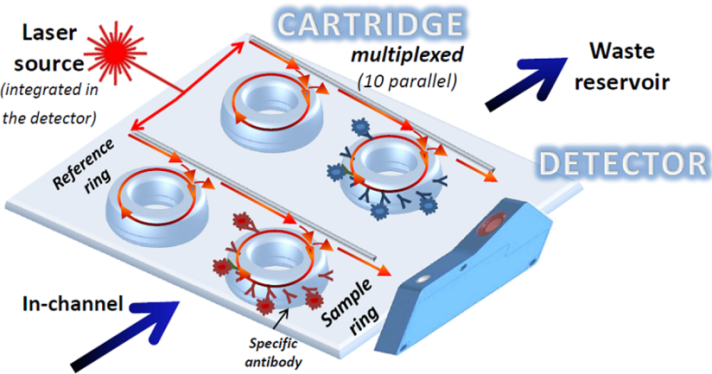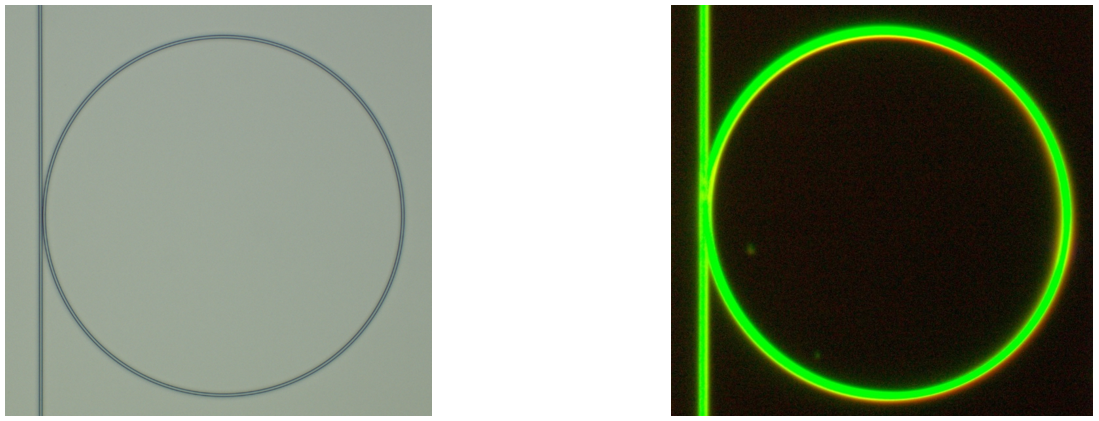- Michiel de Goede - PhD. Student
- Sonia García Blanco - Scientific Staff

Glass-Laser Multiplexed Biosensor´s (GLAM) groundbreaking technology will help oncologists make better treatment decisions, approaching personalized medicine, in a cost-effective and non-invasive manner. Coordinated by LEITAT Technological Center in Spain, the 4-year project joins recognized organisations all over Europe: the Institute for Bioengineering of Catalonia (IBEC) (ES), University of Twente (NL), WizSoft LTD (IL), Université libre de Bruxelles (BE), ICFO (ES), Radboud University Medical Center (NL), NOVELIC DOO (SB), OPTOCAP LTD (UK) and OBELIS SA (BE).
Differential cancer diagnosis takes place daily in clinical settings for better monitoring of patient responses to existing treatments. However, outcomes still leave much to be desired, and moreover, the current technology used to measure biomarker levels is expensive and sophisticated. Most cancer biomarker analysis uses blood or biological tissues as the main source of material. These biopsies must be analyzed in specialized laboratories, incurring some limitations: high cost; specialized personnel and equipment; large amounts of biological material; long outcome delivery time; and time consuming processes.
There is therefore a real need and urgency to have new devices that provide diagnosis, prognosis, and data monitoring faster and with exceptional ultra-sensitivity in time to take appropriate decisions to improve personalized diagnosis and therapy. The aim of the GLAM project is to provide an innovative device to fulfill these requirements using soluble biomarkers for personalized diagnosis and therapy monitoring.
Specifically, GLAM will design and develop a new diagnostic tool to detect biomarkers from biofluids obtained in a non-invasive manner, focusing on urine and genitourinary cancers, to help oncologists to make better treatment decisions, approaching personalized medicine. The project will develop an integrated device based on novel label-free photonic biosensors with ultra-sensitivity, simplicity of use, portability, multiplexing and low cost.
GLAM capitalizes on the unprecedented sensitivity achieved using laser microring resonators to detect key biomarkers in tumor development and treatment. Point-of-Care sample analysis will be made possible by this new device in a preclinical and clinical personalized treatment for patients suffering from genito-urinary cancer. Importantly, the unique GLAM technology will make the device also usable with other biofluids and might also be used to help physicians with biomarker-driven management of other disease

Figure: schematic of the GLAM sensor.

Figure: Al2O3 ring laser.
